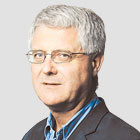今年のBoston Symphony は,シーズン初めに,着実にorchestra の演奏水準を回復向上させてきたMusic Director, James Levine の辞任に始まったのですが,Boston Symphony Hall シーズンのあと,Tanglewood Music Festival を例年通りやってきて,その最終日をBeethoven の第9交響曲「合唱」で締めくくるはずだったのが,優しい名前のハリケーンIrene が珍しくアメリカ東海岸沿いに北上したものですから,最終日の演奏会がキャンセルされて終わってしまいました.Beethoven の第9 は流されてしまったのです.the first cancellation of a BSO concert because of weather in the festival’s 75-year history.
Tanglewood には大物から若手まで,新しいMusic Director を探す絶好の機会だったこともあって,このReviewでは,大物から若手までの指揮者連中がいろいろ評価されていましたので,取り上げてみました.Four replacement conductors were added to the roster of 13 already scheduled, making a total of 17 -- seven in debuts -- for the 22 Boston Symphony Orchestra concerts.
By Andrew L. Pincus, Special to the
Eagle
LENOX -- Weirdly, the cancellation of Tanglewood’s closing Beethoven Ninth by
Hurricane Irene seemed a preordained conclusion to the season.
The augury, in retrospect, was James Levine’s resignation last March, causing
him to miss a second consecutive summer. Four replacement conductors were added
to the roster of 13 already scheduled, making a total of 17 -- seven in debuts
-- for the 22 Boston Symphony Orchestra concerts.
The podium became a revolving door. For every newcomer who delivered, such as
Jaap van Zweden (originally scheduled) and John Storgaards (replacement), there
was a Pablo Heras-Casado or Lionel Bringuier (both scheduled) who fell short.
The veteran Rafael Frühbeck de Burgos and Christoph von Dohnányi were good as
gold, as usual. But even some of the old reliables -- notably, Charles Dutoit
and Kurt Masur -- didn’t measure up to past performance. Two stalwart soloists,
cellists Yo-Yo Ma and Lynn Harrell, were also off their form, adding to the
sense of imbalance.
Accustomed to quick changes in podium styles and personalities, including
different preferences in seating, the BSO played well under the circumstances.
But there was a constant sense of flux, of rise and fall, as if the season were
on unsteady ground. Then on the final day, the storm: the first cancellation of
a BSO concert because of weather in the festival’s 75-year history.
Levine, whose series
of health-related absences put an end to seven-year tenure as music
director, was missed in the BSO and Tanglewood Music Center concerts he would
have led (and the TMC classes he would have given). But he would also have
brought greater consistency to a season that hop-scotched around among
composers, periods and styles as well as conductors.
As managing director Mark Volpe observed in an end-of-season interview,
"Whether there’s a music director or not, there are always concerts that are
better than others." He cited such variables as weather conditions (of which
nature provided extreme case) and scheduling considerations.
Yet, Volpe added, veteran conductors such as Dohnányi, Dutoit and Masur, who
have worked with the BSO for decades, "think the orchestra is in the best shape
it’s been in, possibly ever." That would be a testament to Levine’s
orchestra-building skills.
In conversations with players, Volpe said, he found sadness that Levine had
been forced resign yet relief that the "debilitating" uncertainty of his
availability was past. With the bevy of new guest conductors expected during the
Boston season, the players are "kind of excited about the future," he said.
Even without Levine as an opera champion, two full-length operas, both in
concert form, lent luster to the season. Under Bramwell Tovey, the BSO gave a
dazzling performance of "Porgy and Bess." The week before, the Philharmonia
Baroque Orchestra, under Nicholas McGegan, visited with a sumptuous rendition of
Handel’s "Orlando."
And if the season was uneven in the conducting department, it featured
excellent piano soloists, both new and old. Among newcomers, Yuja Wang and
Martin Helmchen made strong first impressions. Among regulars, Emanuel Ax and
Jean-Yves Thibaudet were masterly in the music at hand.
As in previous Ozawa Hall surveys of individual composers’ solo or sonata
output, Thibaudet’s two-night cycle of Ravel’s complete piano music was a season
highlight. He topped it off with the two Ravel piano concertos with the BSO.
Among other excellent soloists, violinist Nikolaj Znaider was outstanding in a
BSO and recital debut.
As always, there were also memorable TMC events. Two that remain vivid in
retrospect are the Stefan Asbury-led performance of Rachmaninoff’s "Symphonic
Dances" with the TMC Orchestra and an imaginative evening of song built around
three short operas by Darius Milhaud.
The BSO is clearly in a period of transition following the loss of its music
director, but Volpe said there is no sense of urgency in the search for a
successor.
The coming Boston season, he said, will be anchored by such longtime guest
conductors as Dohnányi and Bernard Haitink, and a selection of new conductors
will offer variety. They’ll also offer possible candidates for the music
director vacancy, though the search process is guarded as secretly as the White
House nuclear codes.
Next summer will bring Tanglewood’s 75th-anniversary celebration. Volpe
promises special programming. Among other things, he said. without offering
details, some of the original programming will be revisited.
While plans are incomplete, Volpe also hopes to repeat the past summer’s
two-week pre-BSO season of popular attractions, which featured such perennials
as James Taylor, Garrison Keillor and the Boston Pops along with a Popular
Artists concert.
The programming was a success in terms of audiences and income for the BSO,
and pleased area innkeepers and restaurateurs as well. A similar "shoulder
season" post-BSO also is possible, Volpe said, but is it harder to staff because
college students who provide much of the summer help have gone back to school.
Meanwhile, the Labor Day weekend jazz festival begins tonight.
Despite losses stemming from the national economy, Volpe pronounced the BSO
in good overall health financially, with Tanglewood attendance running five
percent above last year’s before the final weekend’s washout. Money speaks, but
so does the weather.










